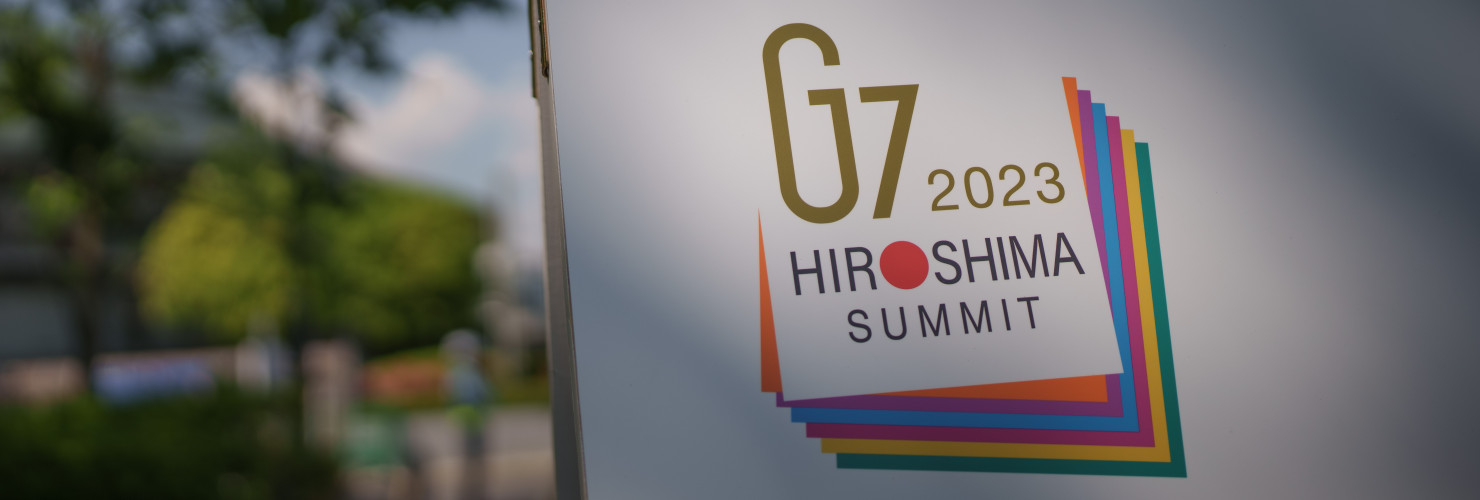

The China factor in Japan’s G7 presidency
In a bid to reassert the legitimacy of a seven-country group that does not include China or Russia, Aya Adachi says Tokyo has made the inclusion of the Global South a priority.
By tabling issues such as economic security, geopolitical dependencies, cooperation with the Global South, and the tensions in the Taiwan Strait, Japan’s presidency of the G7 is overshadowed by challenges associated with China. As host to the leaders of the seven advanced economies from May 19 to 21, Tokyo is trying to find a balance between globalization, from which most countries, including China, continue to benefit - and standing up to Beijing without hurting the system too much.
Japan has made inclusion of and cooperation with the Global South a priority for the G7, in a bid to reassert the group’s global legitimacy. After the global financial crisis of 2007 - 2008, the broader G20 grouping had become the forum for global economic issues. But growing differences with member countries China and Russia have seen the G7 make a comeback by its rediscovery as grouping of “like-minded countries” with crucial common positions – even if this has led to questions about its authority in a globalized, post-colonial world.
Beijing has long perceived the grouping as a vehicle to steer US interests in strategic competition with China. And Russia’s war on Ukraine has revealed stark geopolitical differences between the West and the Global South, many of whose members have followed China by not condemning Moscow’s actions. At a time of economic and food crises, both factors are threatening to undermine the relevance of G7 decisions over global governance.
Leaders from Africa, India, Indonesia and Brazil will be in Hiroshima
Japan has reacted by including the concerns of developing and emerging countries in its G7 agenda and fostering an awareness that the group’s striving for economic security can disrupt relations with the Global South. Japanese Prime Minister Fumio Kishida recently visited Africa and invited the leaders of Comoros, the current African Union chair, India, which holds the G20 presidency, Indonesia, the current ASEAN chair, Vietnam and Brazil to the Hiroshima Summit, allowing them to directly address the G7 with their concerns.
Japan has drawn on its experience of ensuring economic security while competing with China. The country has long to come to terms with a more assertive China and in the past ten years has taken various measures to recalibrate ties. Tokyo pioneered policies from export controls and stockpiling rare earths to investment and supply-chain diversification. Aware of China’s rise in the Global South, it expanded investment and development cooperation and is now seen as a good alternative to China’s Belt and Road Initiative (BRI).
It is therefore no surprise that many cooperation proposals under Japan’s G7 presidency have a strong focus on economic security and the Global South. Proposals such as combining forces to create a deterrence mechanism against economic coercion might well prove too controversial. But other measures that aim to promote efficiency in adopting economic security measures – like addressing forced state-led acquisition of critical technologies and intellectual property – could prove to be more palatable for Japan’s summit guests.
Tokyo is pushing G7 to invest better and more in key-tech innovation
To avoid resorting to the blunt instrument of unilateral protectionism in competing with China, Japan has proposed that G7 countries coordinate and cooperate to increase investment in innovation in emerging technologies. To include the Global South, the G7 is considering the promotion of more resilient supply chains for clean-energy technology. It hopes this would attract Western investment and development for manufacturing products like electric vehicles and solar panels in emerging markets other than China. And this would as a result help reduce the current global dependence on Chinese-made green technology.
The EU, for one, has started to address economic security issues over the past few years, but it has made little headway in thinking beyond national security and domestic markets and how measures to strengthen these areas might come at the expense of multilateral trade and the Global South. The EU’s Global Gateway investment program remains relatively unattractive to the Global South and is still struggling to bring its connectivity strategy to life.
Japan’s effort to balance coordinated economic security measures among the G7 with cooperation with the Global South could be an effective guardrail in ensuring the efficiency of economic resilience and de-risking policies. Alternatives to energy supplies from Russia and economic opportunity in China would give Europe a new take on development cooperation and the Global Gateway the direction it needs. This could help the richest democracies reassert their say over tackling the latest economic problems and political vulnerabilities.
